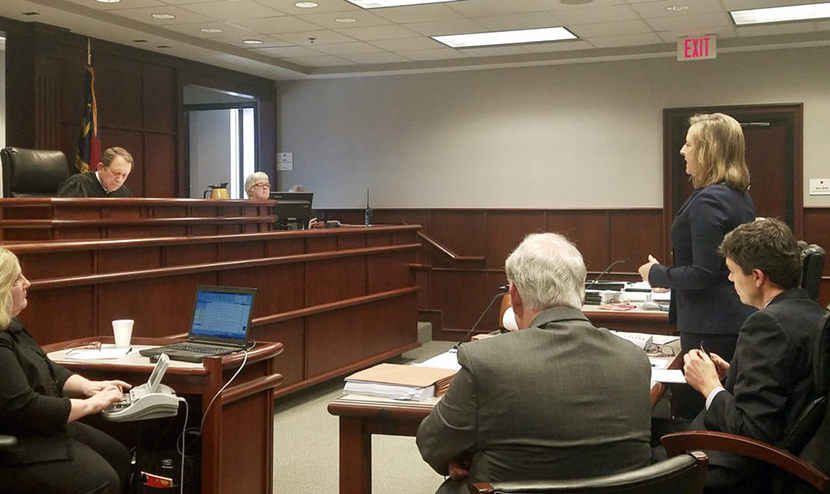Publisher's note: The author of this post is Lindsay Marchello, who is an associate editor for the Carolina Journal, John Hood Publisher.
Board attorney argues improvements in education since initial decision and the board's inability to spend more money or raise taxes should end court's jurisidiction
The landmark Leandro case may be short one defendant if a Superior Court judge grants the State Board of Education's motion to withdraw from the case.
Judge David Lee heard arguments Feb. 15 over the state board's motion to withdraw from the longstanding educational lawsuit. If Lee goes along, the state would be the only defendant in the case.
The Leandro case started in 1994 when five rural school districts sued the state, arguing they couldn't raise enough tax revenue locally to provide an education for their students on par with the schools in wealthier districts.
In 1997, the N.C. Supreme Court held that every North Carolina child has a right to "a sound, basic education" under the state constitution. Later in a 2004 ruling, the court said the state had not lived up to the standards set by the 1997 decision.
In July 2017, the parties involved in the lawsuit filed a joint court
motion asking an independent consultant to help enforce the state Supreme Court order. Around the same time, Gov. Roy Cooper established the Commission on Access to a Sound Basic Education to make separate recommendations on Leandro.
Lauren Clemmons, an attorney representing the state board, said the board remains committed to fulfilling its constitutional duty to supervise and administer the state's public education system. But it no longer needs court oversight.
"There is not an ongoing constitutional violation by the state board that requires the court's continued supervision," Clemmons said.
"You can't find an ongoing violation by the state board when it acts in a manner consistent with the statutory obligations."
Clemmons argued the circumstances surrounding the case have changed over the years, as SBE has implemented new policies and programs including Read to Achieve to improve student performance and ensure access to a sound, basic education.

Melanie Dubis, the attorney representing the plaintiffs, argues before Superior Court Judge David Lee Feb. 15 that the State Board of Education shouldn't be allowed to withdraw from the Leandro case. (CJ photo by Lindsay Marchello)
Performance standards also have changed since the Leandro case began in the 1990s and are more rigorous than when the case started. Clemmons said test scores dropped with the new, more challenging standards, but this shouldn't be considered a constitutional violation under Leandro.
Clemmons said the state board does not have the power to appropriate funds or raise tax revenue. The court should not have supervisory power over a constitutional body (the state board) that never would have the ability to spend more money or raise taxes.
Melanie Dubis, an attorney representing the plaintiffs, said the burden of proof is on the defendants to show they have met their constitutional obligation and have remedied the original problem.
Dubis said focusing solely on test scores misses the point of Leandro. The court ruled that ensuring opportunities for a sound, basic education meant ensuring quality teachers in every classroom, quality principals in every school, and sufficient resources for those schools.
Dubis did not buy the state board's argument that the educational landscape has changed much from when Leandro was first litigated. The plaintiffs' attorney said Superior Court Judge Howard Manning, who once presided over the Leandro case, was aware of the changes in the educational system and found the old system comparable to the new one.
"It is not a completely new day," Dubis said.
"It is not a changed circumstance."
Dubis said it is inequitable to allow a state actor to take advantage of the passing of time and their own inaction to seek relief from the case.
Mark Dorosin, arguing for plaintiff intervenors, said merely implementing new policies is not sufficient proof that the state board has remedied the original constitutional violations. Dorosin said the board needs to present evidence proving those new policies and programs have made a difference.
Lee said he will make a decision sooner rather than later over releasing the state board from the case.

